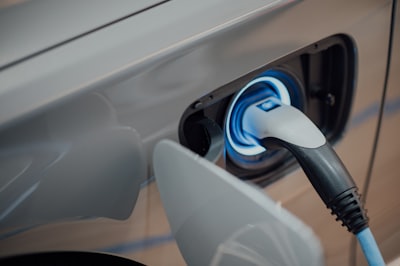Whether they’re business vehicles, commercial vehicles, or personal vehicles, if you own a car, knowing which type of fuel it needs to run at its best will give you peace of mind and confidence that your machine will run well into the foreseeable future. The best way to know which fuel works for your car, knowing the different types can help. In this article, we’ll discuss the types of fuel out there and alternatives if you want to be environmentally conscious.
The Different Types of Fuel

Different types of fuel have different benefits for your vehicle or vehicles. Fuel can be combustible or non-combustible; combustible fuels burn, and non-combustible fuels break down into parts. These fuels can come in three states: solid, liquid, and gas.
Solid fuels are made of small particles that are close together. When solid fuel is burned, the particles move around with the growing heat, and energy begins to burn and release. They’re easy to store, used for most vehicles, and in addition to gas, including wood and coal as solid fuel types.
Liquid fuels are what are found in cars and trucks, and they are made of small droplets close together with high density and high energy release. Liquid fuels include gasoline, diesel, and kerosene, and they are also easy to store, like solid fuel.
Gas fuels are optimum for vehicles that need a lot of power. When a gas fuel is burned, the molecules are heated until they start to move around. They then start to burn and release energy. Gas fuels include hydrogen, methane, and propane.
Knowing the type of fuels that are out there can help vehicle owners decide not only what fuel to put into their vehicles but also what vehicles to buy, to begin with.
The Benefits of Biofuel

Though the above fuels are very important to our society, they cause damage to the environment. In an attempt to reduce the pollution levels that are brought on by liquid, gas, and solid fuels, renewable and replenishable biofuels like ethanol and biodiesel are beginning to make waves. Biofuels are made from organic matter, such as vegetable oil, corn, or switchgrass.
Ethanol fuel is a renewable fuel made from corn and other plant materials, meaning it’s easy to gather resources for and replenish. Ethanol is a clean-burning fuel that produces little pollution. It is also relatively affordable and can be used in most vehicles without modification.
The truck and diesel engine biofuel that does the same work as ethanol is called biodiesel. It’s a fuel made from vegetable oils or animal fats that don’t need modifications, and because it’s renewable, it can be replenished again and again through plant growth and animal fat. Biodiesel is a more sustainable fuel than ethanol, as it can be produced from waste materials. Biodiesel is also more environmentally friendly than traditional diesel fuel, as it produces less air pollution.
The Benefits of Electric Vehicles

Though the world is making moves to reduce pollution by creating biofuels and biodiesels, there are people who choose to move away from fuel vehicles altogether and choose electric vehicles, which are swiftly gaining popularity. Electric vehicles are powered by very powerful batteries, which are recharged from an external electrical source for less cost than the fluctuating fuel prices. As technology improves, electric vehicles are becoming more popular, and their benefits are more and more appealing to the eye.
There are many benefits to electric vehicles, including:
- Low emissions – electric vehicles produce zero emissions, which is great for the environment.
- Reduced running costs – electric vehicles are cheaper to operate than gasoline or diesel vehicles since you only need to recharge the battery rather than buying/refilling fuel.
- Quiet operation – electric vehicles are much quieter than gasoline or diesel vehicles, which is great for those who live in urban areas.
- Reduced maintenance costs – electric vehicles have far fewer moving parts than gasoline or diesel vehicles, so they require less maintenance.
If you want an alternative to fuel altogether, electric cars could be for you. Electricity is another type of fuel, after all, and it’s readily available and accessible in large quantities.
Add Commercial Car Insurance

Putting the wrong fuel in your car can cause damage to your vehicle, which will lead to hefty replacement prices. It’s a good idea to look into a good car insurance company for your vehicles. No matter the type of business, business owners can benefit from the affordability of commercial auto insurance to protect all of their vehicles from accidents. The worst liability is a business vehicle that won’t run or is damaged from an accident, so protecting your vehicle from fuel issues is important.
Choosing the right fuel, whether it’s gas, liquid, solid, biofuel, or electric can help you decide how big you want your carbon footprint to be for your personal use or your business. Always look into car insurance to protect your vehicles from any damages, including fuel-related mistakes that’ll cost money in the future.



